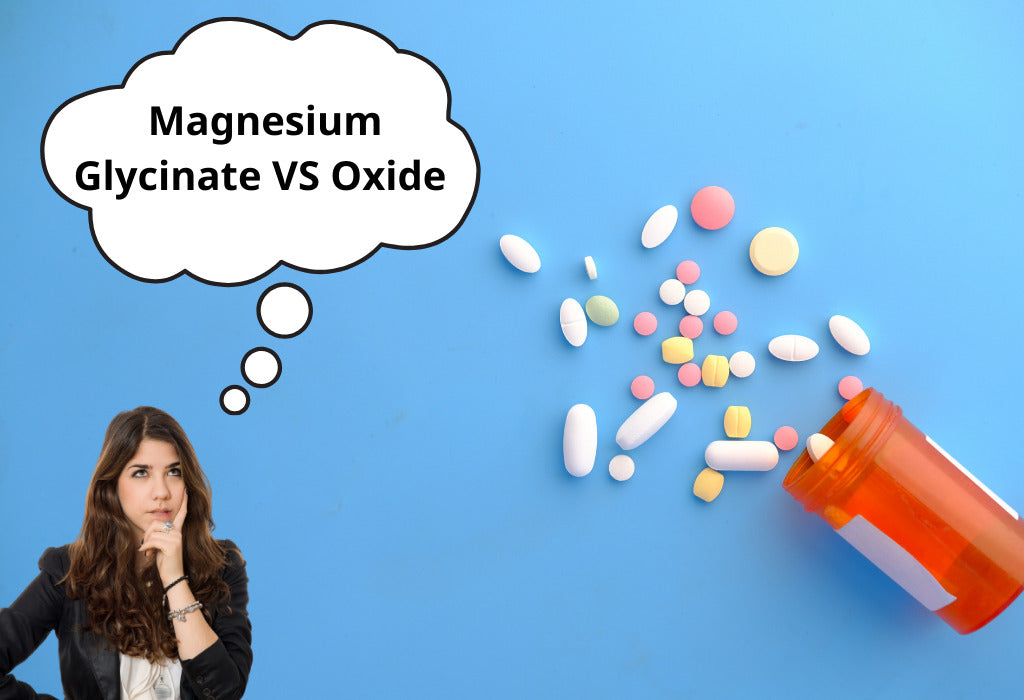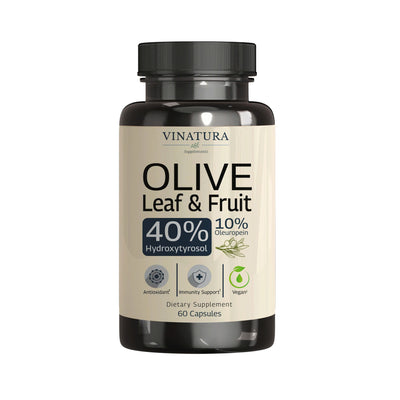
The Comparison Between Magnesium Glycinate Vs Oxide
Magnesium is an essential mineral involved in many important functions of the human body, such as energy production and maintaining the functioning of the nervous system and muscles.
Among the popular forms of magnesium supplements, the two most popular types used by users are magnesium glycinate and magnesium oxide, with great effects. Let's compare these two supplements to get the most objective view of magnesium glycinate vs oxide.
Before exploring further, please read the disclaimer located at the end of this webpage.
Key Takeaways
- Magnesium is better absorbed, causes less stomach upset and is often chosen to reduce stress and improve sleep.
- Magnesium oxide is less absorbable and is mainly used to help relieve constipation or short-term magnesium deficiency.Which substance should be considered based on each person's health goals and body's ability to react?
What Is Magnesium Glycinate?
Magnesium glycinate is formed from elemental Magnesium along with the amino acid glycine. The bond between elemental Magnesium and the amino acid glycine is stable in the acidic stomach environment, which will help Magnesium be easily absorbed in the intestinal tract. Magnesium glycinate would be an ideal supplement for those looking to improve magnesium levels without causing gastrointestinal upset.
Magnesium glycinate is a supplement that helps calm the nerves and improve the quality of our sleep. Besides, this substance also reduces stress and anxiety, helping us relax more, along with several other accompanying effects such as maintaining a regular heart rate, promoting or supporting bone health. Helps reduce muscle tension.
What Is Magnesium Oxide?
Magnesium Oxide is also a derivative of Magnesium combined from Magnesium and oxygen. However, the absorption capacity of this derivative is not high, and the absorption is not as easy as that of other forms of magnesium. One of the uses that must be mentioned for magnesium oxide is the ability to reduce constipation. This compound can be used as a laxative support product.
The Comparison Between Magnesium Glycinate Vs Oxide

Absorption & Bioavailability
As for absorption, magnesium glycinate is noted to have a higher absorption capacity than magnesium oxide, especially without causing stomach discomfort. Meanwhile, Magnesium Oxide is not easily absorbed by the body, causing a large portion not to be used by the body and stored in the intestines [1].
Potential Benefits
Thanks to the presence of glycinate in the derivative, Magnesium is known for improving sleep by reducing the effects of stress, calming the nerves and helping us relax.
Meanwhile, magnesium is recognized for several uses, such as its effectiveness in reducing constipation and supplementing the body with magnesium. However, magnesium oxide is often less than an ideal choice for supplementing the body with Magnesium because of its low bioavailability.
Side Effects
Thanks to its good absorption in the intestinal tract, magnesium does not cause discomfort to the digestive system and limits unnecessary side effects for users. However, magnesium oxide, which may help with some digestive problems, is more irritating to the digestive system due to its relatively poor bioavailability.
One thing to note is that, no matter how good a magnesium supplement we use, overdose will bring certain side effects to us such as nausea, diarrhea, allergies, ... Although no bad cases have been recorded due to magnesium supplements, to ensure health safety, please consult a medical expert before using.
Dosage
Currently, magnesium glycinate supplement products on the market have standard dosages ranging from 200 - 400 mg daily, with 1 - 2 capsules per use. This is the appropriate dosage recommended by companies for adults with normal health.
For magnesium oxide, the dosage included in products is usually higher because the absorption capacity of Magnesium is lower, only 4% [2]. The dosage usually fluctuates at about 400 - 500 mg, and uses 1 capsule a day.
Ratings & Reviews
With the benefits that magnesium glycinate supplements bring, this substance has received much positive feedback from consumers in supporting sleep and reducing anxiety. Meanwhile, magnesium oxide received lower ratings due to limitations in bioavailability and absorption of this substance, which caused some mild side effects for users.
Can You Take Magnesium Glycinate & Oxide Together?
No research has been done on using magnesium glycinate and oxide together. This combination will likely benefit your body but may also bring more side effects. Therefore, to be sure about the safety of your body when used in combination, please consult doctors and medical experts.
Magnesium Glycinate & Oxide: Which Should I Choose?
Magnesium glycinate is recommended for you to improve your sleep and reduce stress. This type of substance will bring the desired effects while not causing discomfort to your stomach.
If you are looking for a magnesium supplement to help constipation or short-term magnesium supplementation at a low cost, consider magnesium oxide.
Magnesium Glycinate Vs Oxide For Migraines
According to a study, Magnesium can help reduce migraines [2]. Therefore, magnesium glycinate vs oxide, two derivatives of Magnesium, also have some potential related to migraine relief. However, Magnesium glycinate is often preferred due to its higher absorption, fewer side effects and some accompanying benefits, such as calming the nerves and reducing stress.
Conclusion
So, through the above article, we hope you have learned useful information about the two types of magnesium supplements, glycinate and oxide. Consider carefully to choose the product that best suits your body.
References
- [1] M;, F. M. (n.d.). Bioavailability of US commercial magnesium preparations. Retrieved from https://pubmed.ncbi.nlm.nih.gov/11794633/
- [2] Schwalfenberg, G. K., & Genuis, S. J. (n.d.). The Importance of Magnesium in Clinical Healthcare. Retrieved from https://pmc.ncbi.nlm.nih.gov/articles/PMC5637834/
Author

Product Disclaimer
Including an ingredient or study does not evaluate, endorse, or recommend any Vinatura product or any third-party product. Some ingredients discussed may not be used in any Vinatura product.
The content of the articles has not been evaluated by the Food and Drug Administration (FDA) and is not intended to promote or endorse any specific product. Any products sold on this website are not intended to diagnose, treat, cure, or prevent any disease.
Opinions and Endorsements
Any claims, statements, or opinions expressed in the articles are those of the author(s) and do not necessarily reflect the views or opinions of the manufacturers of the dietary supplement products. The products sold on this website are separate from the content of the articles and are not directly endorsed or associated with the information presented here.
Liability Disclaimer
The author(s) of the articles, website, and manufacturers of the dietary supplement products do not assume any liability for any potential consequences arising from the use of the information provided in the articles. Ingredient effects, dosages, and safety vary by individual, formulation, and context; some ingredients interact with medications or may be unsuitable during pregnancy or lactation. It is recommended that individuals consult with a qualified healthcare professional before making any dietary or lifestyle changes, including the use of dietary supplements.
Product Usage
Please refer to the product labels and packaging for specific usage instructions and guidelines for the dietary supplement products sold on this website.
Customer Support
For any concerns or questions regarding the dietary supplement products, please contact our customer support team, who will be more than happy to assist you.





Leave a Comment
Be the first to comment.
What do you think?